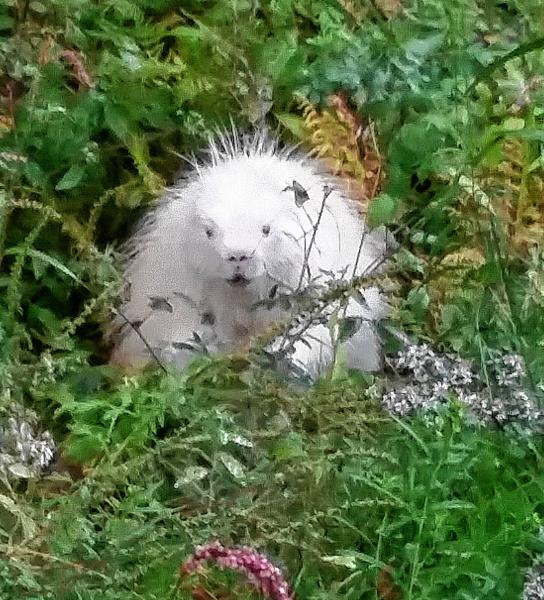Albino animals don’t usually do well in the wild, because they’re easy to be spotted by prey and predators when it’s not snowy (there’s a reason that snowshoe hares change color as winter comes) and because melanin is important in the development of the retina and iris, which means albinos often have poor vision. Albino porcupines are extra harmed, because melanin makes their quills hard and barbed.
All of which makes it surprising that while rare, albino porcupines in New Hampshire are not unknown: My story in the weekend Concord Monitor (read it here) quotes a state wildlife biologist who has had three separate reports of them this year. The story notes that porcupines are social animals that protect each other, so perhaps these bright white variants are protected by their cousins.


 Return to the Concord Monitor
Return to the Concord Monitor